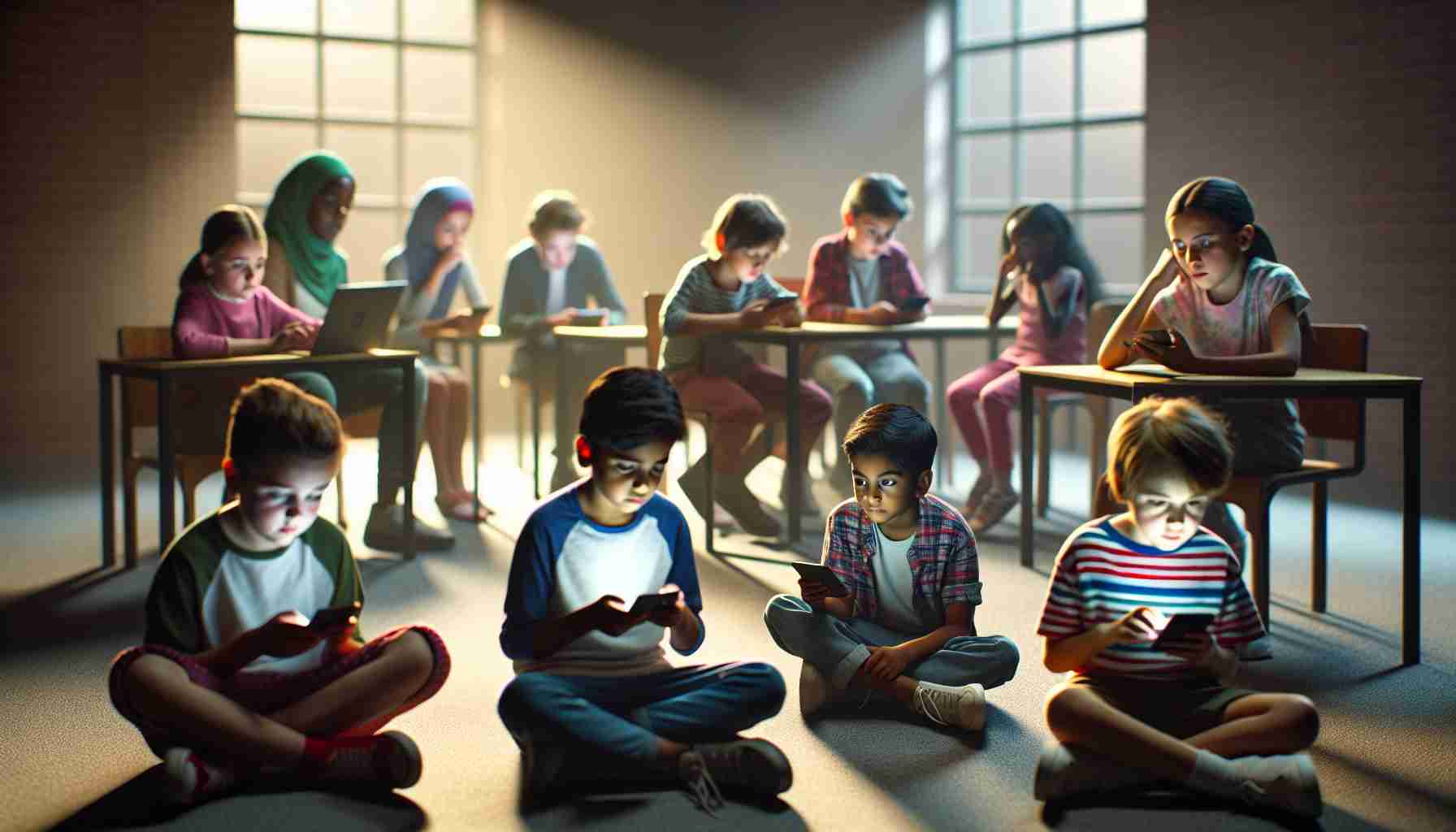A new documentary shines a light on a pressing concern: prominent TV figures Matt and Emma Willis have joined forces to explore the detrimental effects of smartphones on children. They feel that their own kids are slipping away, consumed by their devices, leading them to engage in a striking two-part series.
The series, which kicks off this Wednesday, features students from The Stanway School in Colchester as they embark on a challenging 21-day phone detox. During this period, behavioral changes in the pupils are carefully monitored by experts.
Parents at the school expressed similar sentiments as the Willises, sharing a collective fear of losing connection with their children due to technology. Emma reveals that this issue hits close to home for them, citing their three children, aged 15, 12, and 8, as being in the same developmental stage as the participating Year 8 students.
Among the participants was Harry, who initially spent nearly nine hours a day glued to his screen. He described the anxiety of giving up his phone, feeling as if a vital part of himself had been erased. Conversely, Scarlett found the experience liberating, noting improvements in her mood without the constant urge to scroll through social media.
The head teacher, John Player, reported significant positive shifts, including a 17% decrease in anxiety symptoms among students post-experiment. With one in four children exhibiting signs of behavioral addiction to their devices, this social experiment raises crucial questions about screen time in today’s youth.
Exploring the Impact of Smartphones: A Revolutionary Documentary on Child Well-being
The Smartphone Dilemma
The recent two-part documentary series featuring Matt and Emma Willis delves into the critical issue of smartphone usage among children, portraying a social experiment that could redefine the way we view technology’s influence on youth. This significant initiative highlights the growing concern among parents who fear losing touch with their children due to screen addiction.
The 21-Day Phone Detox Challenge
Set in The Stanway School in Colchester, the series focuses on a 21-day phone detox for Year 8 students. During this period, participants, such as Harry and Scarlett, experience profound changes. Harry, who was initially overwhelmed with anxiety at the prospect of giving up his nearly nine-hour-a-day screen habit, finds the journey challenging yet eye-opening. In contrast, Scarlett experiences a newfound freedom, reporting a notable improvement in her mood.
This juxtaposition showcases varying reactions to reduced screen time, offering valuable insights into the diverse ways children cope with technological detachment.
Expert Monitoring and Behavioral Changes
Throughout the detox, behavioral changes among students are meticulously monitored by experts, revealing remarkable results. Head teacher John Player notes a 17% decrease in anxiety symptoms in students after the program, highlighting the potential benefits of reduced smartphone exposure. This raises a crucial question: How does smartphone usage correlate with mental health in children today?
The Broader Context of Screen Addiction
As one in four children display signs of behavioral addiction to devices, this documentary underscores a growing public health concern. The combination of social media access, gaming, and the constant stimulation from smartphones can lead to negative impacts on mental health, academic performance, and social interactions.
Implications for Parents and Educators
The Willises and many parents express the collective fear of losing genuine connections with their children, particularly during formative developmental stages. As technology continues to evolve, it becomes vital for parents and educators to understand its effects and implement strategies to foster healthier relationships with devices.
Trends in Parenting and Education
This documentary aligns with broader societal trends advocating for reduced screen time among young individuals. Educational institutions increasingly recognize the importance of teaching digital literacy and responsible tech usage. By addressing screen time openly, parents can create an environment that encourages balanced and mindful technology use, potentially mitigating the risks associated with excessive smartphone usage.
A Call to Action
The Willis documentary serves as a wake-up call for parents, educators, and policymakers alike, challenging societal norms regarding technology use. It emphasizes the importance of monitoring the digital behaviors of children to cultivate healthier, more meaningful connections in an increasingly digital world.
For those interested in learning more about the implications of technology on youth, visit Common Sense Media for resources and guidance.
Conclusion
The exploration of smartphone impacts on children through Matt and Emma Willis’ documentary offers critical insights into the present challenge of screen addiction. The findings from the 21-day detox could pave the way for new strategies to enhance child well-being in a tech-dominated era.
